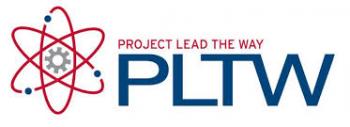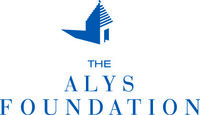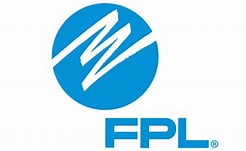PLTW Medical Detectives

- School:
- Seaside School
- Subject:
- STEM Education
- Teacher:
- Charles Lyons
- Students Impacted:
- 50
- Grade:
- 7
- Date:
- October 7, 2025
- Deadline:
- October 10, 2025
Investor
Thank you to the following investor for funding this grant.
CHELCO - $1,000.00
Goal
Project Goal: Implementing Medical Detectives to Increase Student Achievement in STEM
Our project aims to enhance student achievement in 7th grade science by implementing the Project Lead The Way (PLTW) Medical Detectives curriculum. This engaging, hands-on program immerses students in real-world biomedical science challenges, helping them develop critical thinking, data analysis, and scientific reasoning skills that directly support state science standards.
Need:
Many middle school students struggle to connect classroom science concepts with practical, real-world applications. This disconnect can lead to low engagement and limited growth in problem-solving and data interpretation skills. By integrating PLTW Medical Detectives, we will address this need by giving students meaningful learning experiences where they investigate diseases, explore human body systems, and analyze medical data—bridging the gap between science content and authentic application.
Objectives:
Increase student proficiency on science benchmarks related to body systems, health data analysis, and experimental design.
Improve learning gains among students performing below grade level by providing inquiry-based, collaborative investigations.
Foster scientific literacy, teamwork, and communication skills through project-based learning and technology integration.
Encourage interest in STEM-related careers by exposing students to biomedical and health science pathways.
Impact on Student Achievement:
Through this project, students will demonstrate measurable gains in science proficiency as evidenced by classroom assessments, lab reports, and pre- and post-unit evaluations. The inquiry-based nature of Medical Detectives promotes deeper conceptual understanding, resulting in increased performance on standardized science assessments and improved critical thinking across other core subjects.
Category
Learning Aids - Sunshine state book sets, robotics kits, puzzle boards, science models, engineering supplies, etc.
What will be done with my students
With 7th grade students, the classroom grant will support implementation of the PLTW Medical Detectives curriculum through a series of hands-on, inquiry-based activities designed to reveal real-world biomedical challenges and measurable learning growth.
Project Activities
Unit 1: Disease Detectives
Students investigate how health professionals diagnose and treat illnesses by collecting and interpreting vital signs (temperature, pulse, respiration, and blood pressure).
Activities include exploring infectious disease agents and designing simple experiments to test antibiotics' effectiveness.
Unit 2: Mysteries of Human Body Systems
Students examine the functions and interactions of major human body systems and learn how breakdowns can cause symptoms and disease.
Labs feature sheep brain dissections, simulated medical case studies, and collaborative diagnosis exercises.
Unit 3: Outbreak!
Students use evidence-based reasoning and data analysis techniques to trace sources of disease outbreaks, study genetic testing, and analyze DNA evidence from a "crime scene".
Problem-solving group projects and technology-integrated reporting are integral components.
Project-Based Assessments
Students complete portfolios and lab reports, present findings to peers, analyze genetic results, and create educational resources for public health awareness.
Throughout each unit, students demonstrate communication, teamwork, and scientific reasoning skills in alignment with curriculum targets.
Project Timeline (2025-26 School Year)
October–November: teacher training; online via PLTW.
December: Curriculum launch, baseline pre-assessment, introduction to medical detective skills and vital signs.
Disease detectives investigations, infectious agent labs, teamwork skill development, and formative evaluations.
January–March: Human body systems inquiry, brain dissection, case studies, continued analysis, and collaborative diagnosis.
April–May: Outbreak tracing, genetics investigation, portfolio completion, student-driven public health projects, and post-assessment to measure student gains.
Benefits to my students
The Medical Detectives project will provide substantial benefits to students by building foundational biomedical and problem-solving skills that drive measurable achievement.
Benefits to Students:
Increased Engagement and Achievement: Hands-on activities such as disease investigation, body system exploration, and brain dissection promote active participation and enthusiasm for science, leading to higher learning gains and improved proficiency on science benchmarks.
Development of Critical STEM Skills: Students learn to collect, analyze, and interpret data while practicing vital signs measurement, DNA analysis, and real-world medical case study resolution. This boosts their scientific reasoning, data literacy, and ability to design experiments—core competencies for academic and career success.
Enhanced Teamwork and Communication: Collaborative projects require students to work in groups, present findings, and share conclusions, strengthening social-emotional learning and professional communication skills.
Career Exploration and Confidence Building: Exposure to biomedical science pathways helps students discover interests in health and STEM careers, fostering career confidence and motivation.
Project Measurement and Evaluation:
Pre- and Post-Unit Assessments: Student understanding will be quantified through baseline and concluding science assessments, comparing growth in proficiency related to human body systems, biomedical analysis, and problem-solving skills.
Performance-Based Student Work: Lab reports, case study presentations, and portfolios will serve as primary artifacts for tracking achievement of objectives, with scoring rubrics aligned to curriculum standards.
Formative Checks and Teacher Observation: Ongoing formative activities and reflection journals provide data on student engagement, teamwork, and application of scientific concepts.
Budget Narrative
This budget narrative summarizes the essential supplies needed for Medical Detectives projects, focusing on dissection trays and specialized DNA kits. These materials were selected to maximize hands-on learning and align directly with project goals of increasing scientific proficiency and engagement.
Dissection Trays: Durable trays, sized for student use (approximately 8" x 10", stainless steel with wax liner), are requested for all lab groups. These trays are essential for performing anatomical investigations such as sheep brain dissection, providing a safe and reusable lab surface that supports proper technique and specimen organization. This resource enables meaningful, hands-on participation in biomedical science and helps students develop key observational and laboratory skills.
Specialized DNA Kits for Simulated Genetics/Biotechnology: Classroom sets of kits for DNA modeling, simulated blood typing, and DNA extraction are included. These specialized kits allow students to engage in realistic genetics activities—such as analyzing blood types and simulating DNA profiling—closely mirroring real-world forensic and medical applications. These experiences deepen understanding, promote critical thinking, and directly support the project’s goal of building problem-solving and data-analysis proficiency.
Items
| # | Item | Cost |
|---|---|---|
| 1 | DNA Detectives kits, blood typing simulation kits, agarose, dyes, and micropipettes: quantities doubled for 50 students | $740.00 |
| 2 | Dissection trays (20 reusable) | $260.00 |
| Total: | $1,000.00 |






Share
Please share this page to help in fulfilling this grant.
Email to a Friend